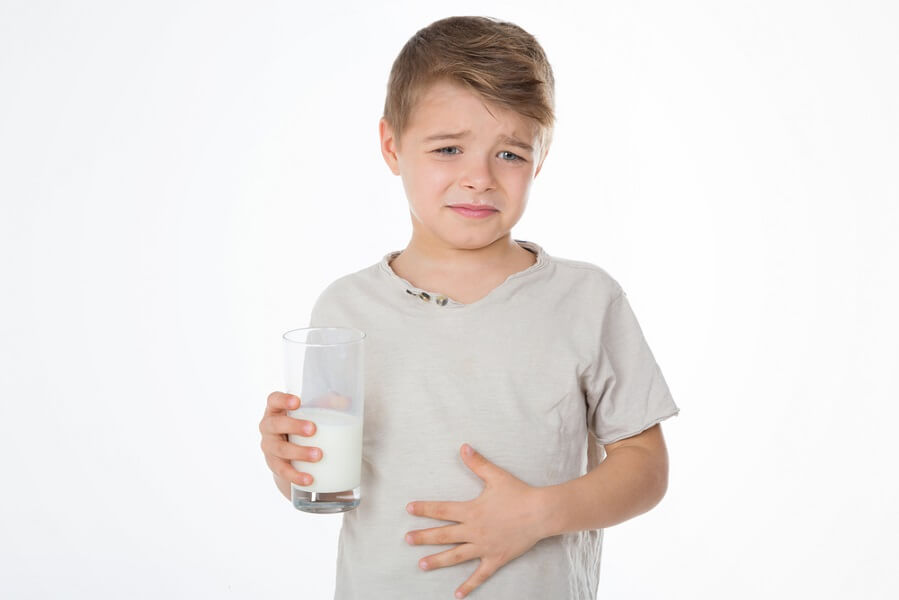
7 Common Allergies In Kids You Should Know About
19 May 2022 | 4 min Read
Tinystep
Author | 2574 Articles
Sneezing, wheezing and itching? Allergies come with various symptoms and these constantly keep changing too! Weather conditions force microorganisms in unfathomable places which lead to allergies and diseases. But it’s not just allergies from these organisms that may affect your kids; your kids might also be allergic to certain food items.
Here are some Common Allergies that you might want to watch out for in your kids:
1. Skin Allergies

Does your kid have dry, red and scaly patches on his skin? This is a common skin condition or allergy known as Eczema. This also causes allergic rashes by mere touching of any object by the child. The signs are often characterized by hives and swelling ranging from a size of a pen tip to the size of a pea. It is also advised that you ask your doctor how to go about using steroid creams before taking matters into your own hands.
2. Milk

Milk allergy is the most common form of allergy in infants and young children. Milk allergy should not be confused with lactose intolerance. Most kids are allergic to cow’s milk in particular. Remember to read the label of ingredients before buying any product. The symptoms of milk allergy can be anything between mild fever and rashes to anaphylaxis. Anaphylaxis is a condition wherein the body’s circulation slows down and the person is unable to breathe.
3. Peanuts

Peanuts can cause severe, potentially fatal – allergic reactions. It can lead to choking and instant death in some cases. To prevent this, make sure you keep your kids away from peanuts and peanut products. Peanuts and other types of nuts (cashew nuts, almonds, pistachios) are quite different and a person suffering from peanut allergy may not necessarily be allergic to all types of nuts.
4. Eggs

Egg allergy is a common type of food allergy, second to milk allergy. The symptoms of egg allergy are the same as that of milk allergy – ranging from mild hives to anaphylaxis. Most children have been noted to outgrow egg allergy unlike any other allergen. The egg white has a certain protein to which most kids are allergic. But it is advised all the same, to keep away from all parts of an egg – white or yellow.
5. Soy

Studies indicate that approximately 0.4 percent children in this world are allergic to soybean. Soy allergy occurs in infancy and toddlers outgrow it by the age of three. Therefore it is very crucial to take care of your tiny toddlers. Allergic reactions of soy however, are typically mild. Severe reactions may occur in exceptional cases.
6. Fish

Finned fish can cause severe allergic reactions. This allergy is usually permanent and kids do not outgrow it. Strict avoidance of fish and fish products is essential to prevent harm to life. Salmon, Tuna, Halibut and Shellfish are among the most common types of fishes which kids are allergic to. Fish products are difficult to identify and hence it is of utmost importance to read ingredients label and research to find out if a particular food product is remotely related to any type of fish produce.
7. Other allergens
Corn, Meat, Spices, Seeds, Medications and fresh fruits are some other allergens that you need to be cautious of. Although not in large amounts, these products have been reported to have allergic reactions in few cases. The allergy to fresh fruits is known as – Oral Allergy Syndrome. Meat includes – Chicken, beef, pork or mutton. Medical science has advanced enough and hence has cures for all the above mentioned allergies. Worry not parents, if your kid does suffer from any of these allergies. There is a cure or at least a counter for all that’s mentioned. The best cure though, is prevention!
A


Suggestions offered by doctors on BabyChakra are of advisory nature i.e., for educational and informational purposes only. Content posted on, created for, or compiled by BabyChakra is not intended or designed to replace your doctor's independent judgment about any symptom, condition, or the appropriateness or risks of a procedure or treatment for a given person.
